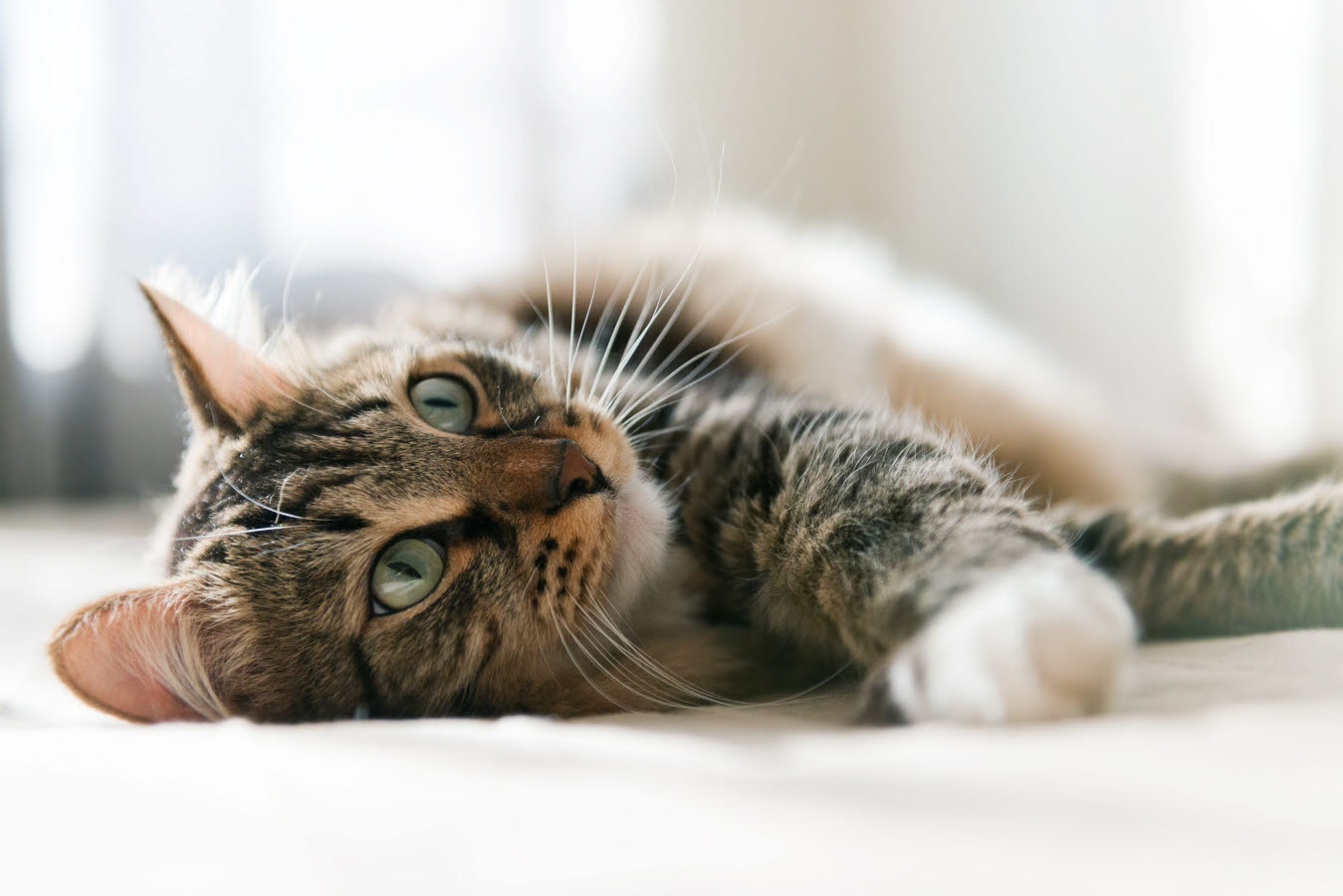The benefits of keeping your cat indoors

Keeping your cat indoors or in an enclosed outdoor area is beneficial not only for your pet’s wellbeing but for the wellbeing of wildlife and pet owners too.
The benefits to your cat’s health
Cats living indoors or in an enclosed outdoor area have reduced exposure to multiple health risks, including:
Disease: There are many illnesses that are transmitted from cat to cat. For example, Feline Immunodeficiency Virus (FIV), is often spread through cat fights. Disease transmission during fighting behaviour is common between domestic cats, and also between feral and domestic cat populations when they live in close proximity causing them to fight over territory. Cats may not show signs of illness for many years, and whilst a blood test can diagnose FIV, the condition cannot be cured, so keeping your cat indoors is the safest option.
Parasites: The risk of certain gut worm infections, such as roundworms, can be reduced if cats live inside. Roundworms are transmitted through cats ingesting worm eggs in contaminated soil from other cat faeces or via ingesting infected rodents. It is still advisable to use worm prevention products in indoor cats.
Cat fight abscesses or wounds: Cats carry large numbers of bacteria on their claws and teeth. Following a cat fight, these bacteria will often cause an infection within the tissues (in the form of an abscess or cellulitis), which requires veterinary treatment.
Traffic accidents: Keeping your cat inside reduces their risk of being hit by a car. Unfortunately, this happens frequently and can result in severe or life-threatening injuries.
The benefits to our wildlife
Research shows that the pet and feral cat population in Australia is responsible for the deaths of at least 1.5 billion native animals per year. Due to the high density of domestic cats in populated areas, they also kill a great deal more wildlife per square kilometre than feral cats.
The decimation of wildlife by cats has the potential to result in the extinction of some native species. The good news is that although the feral population still presents a challenge for conservationists, devastation by domestic cats can be easily reduced by keeping pet cats indoors or in an enclosed outdoor area.
The benefits to you as a pet owner
It might sound silly, but keeping your cat inside can also benefit you. Apart from avoiding the emotional distress of your cat becoming ill or injured, avoiding these health problems can reduce the cost of their care. It may also allow you to form a stronger bond with your cat, as well as ensuring that you are following local council requirements, such as cat curfews. It also means the risk of your cat becoming lost or stolen is markedly reduced.
If your cat is consistently displaying signs that it wants to be outside, an outdoor cat run or enclosure are great options.
Overall, there are many benefits to keeping your cat indoors – for them, for yourself and for our native animals. For advice on transitioning your cat to indoor living, speak with your local veterinarian.
